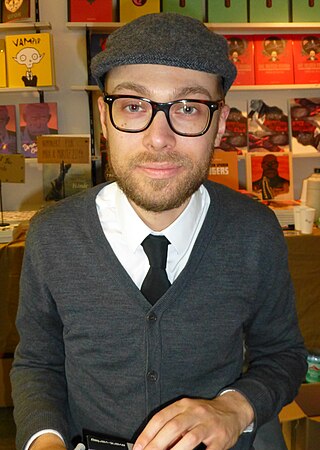
Murray Bookchin was an American social theorist, author, orator, historian, and political philosopher. Influenced by G. W. F. Hegel, Karl Marx, and Peter Kropotkin, he was a pioneer in the environmental movement. Bookchin formulated and developed the theory of social ecology and urban planning within anarchist, libertarian socialist, and ecological thought. He was the author of two dozen books covering topics in politics, philosophy, history, urban affairs, and social ecology. Among the most important were Our Synthetic Environment (1962), Post-Scarcity Anarchism (1971), The Ecology of Freedom (1982), and Urbanization Without Cities (1987). In the late 1990s, he became disenchanted with what he saw as an increasingly apolitical "lifestylism" of the contemporary anarchist movement, stopped referring to himself as an anarchist, and founded his own libertarian socialist ideology called "communalism", which seeks to reconcile and expand Marxist, syndicalist, and anarchist thought.

The Deutscher Werkbund is a German association of artists, architects, designers and industrialists established in 1907. The Werkbund became an important element in the development of modern architecture and industrial design, particularly in the later creation of the Bauhaus school of design. Its initial purpose was to establish a partnership of product manufacturers with design professionals to improve the competitiveness of German companies in global markets. The Werkbund was less an artistic movement than a state-sponsored effort to integrate traditional crafts and industrial mass production techniques, to put Germany on a competitive footing with England and the United States. Its motto Vom Sofakissen zum Städtebau indicates its range of interest.

Robert Michels was a German-born Italian sociologist who contributed to elite theory by describing the political behavior of intellectual elites.
Hans Baumann was a German poet, songwriter, literary translator and author of children's books.
Max Adler was an Austrian jurist, politician and social philosopher; his theories were of central importance to Austromarxism. He was a brother of Oskar Adler.

Johann Jacoby was a left-liberal German-Jewish politician.

The Free Workers' Union of Germany was an anarcho-syndicalist trade union in Germany. It stemmed from the Free Association of German Trade Unions (FDVG) which combined with the Ruhr region's Freie Arbeiter Union on September 15, 1919.

Milly Witkop(-Rocker) was a Ukrainian-born Jewish anarcho-syndicalist, feminist writer and activist. She was the common-law wife of the prominent anarcho-syndicalist leader Rudolf Rocker. The couple's son, Fermin Rocker, was an artist.
Daniel Mogoasha Mokonyane was a South African political revolutionary and writer and legal academic. Latterly residing in London, he was best known for his leadership during the 1957 Alexandra Bus Boycott, one of the most successful single-issue campaigns undertaken during Apartheid.

Walter Kaufmann was a German-Australian writer.

The Lübeck Martyrs were three Roman Catholic priests – Johannes Prassek, Eduard Müller and Hermann Lange – and the Evangelical-Lutheran pastor Karl Friedrich Stellbrink. All four were executed by beheading on 10 November 1943 less than 3 minutes apart from each other at Hamburg's Holstenglacis Prison. Eyewitnesses reported that the blood of the four clergymen literally ran together on the guillotine and on the floor. This impressed contemporaries as a symbol of the ecumenical character of the men's work and witness. That interpretation is supported by their last letters from prison, and statements they themselves made during their time of suffering, torture and imprisonment. "We are like brothers," Hermann Lange said.
German individualist philosopher Max Stirner became an important early influence in anarchism. Afterwards Johann Most became an important anarchist propagandist in both Germany and in the United States. In the late 19th century and early 20th century there appeared individualist anarchists influenced by Stirner such as John Henry Mackay, Adolf Brand and Anselm Ruest and Mynona.

The long march through the institutions is a slogan coined by socialist student activist Rudi Dutschke around 1967 to describe his strategy to create radical change in government by becoming part of it. The phrase "long march" is a reference to the physical Long March of the Chinese communist army.

Neues Geistliches Lied, abbreviated NGL, is a music genre of songs in German intended for church usage, and based on contemporary lyrics and with music by contemporary composers.

Dagmar Enkelmann is a German politician of Die Linke party.
Klaus Naumann is a German historian and author who specialises in modern European history. His research and writings have focused on contemporary interpretations of the legacy of World War II and on cultural history. Naumann authored several books on these topics, published both in German and in English.
Oliver Proske is a German stage designer, industrial designer, exhibition designer, producer and managing director. In 1998 he founded the Berlin-based independent theatre company Nico and the Navigators together with his partner Nicola Hümpel.

Simon Schwartz is a German illustrator, comic writer and cartoonist. His work is published in the Frankfurter Allgemeine Sonntagszeitung, Die Zeit and other newspapers and magazines. He has written graphic novels including "drüben!" and "Packeis" and his work has been translated into French and English.
The Black Band were resistance groups of anarchist and anarcho-syndicalist youth and young adults in the last years of the Weimar Republic.











